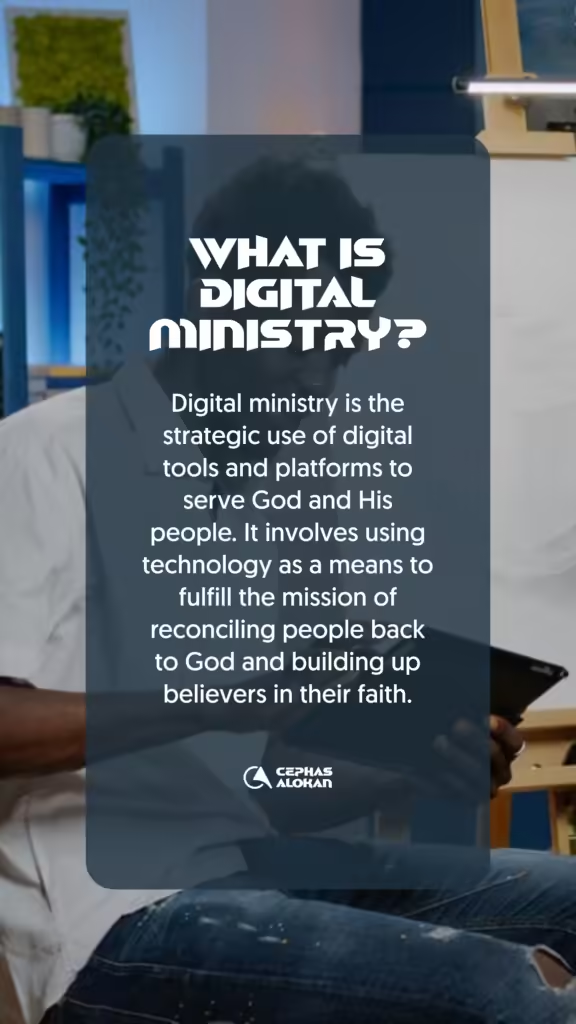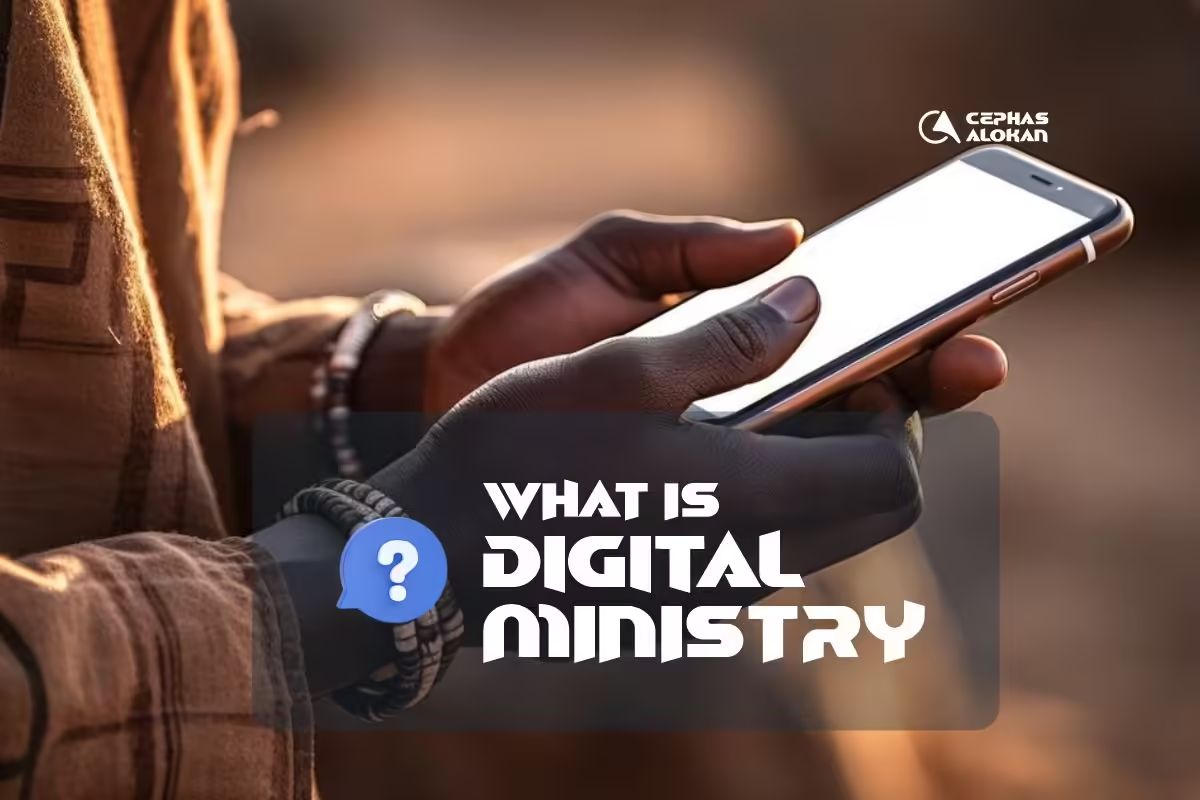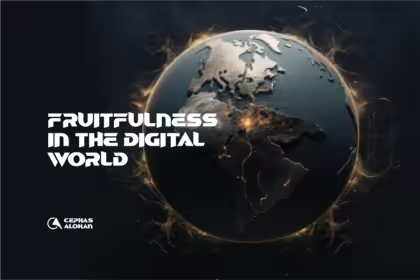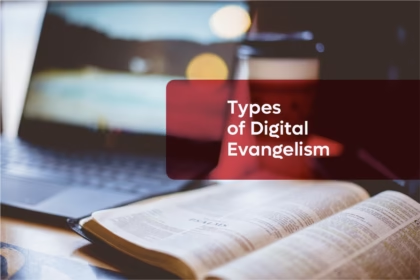I have attempted to define digital ministry in various ways over the years. I’ve looked through the Scriptures, read what others are saying, and engaged in discussions around this subject. Yet, even after four years of responding to God’s call to serve in digital ministry, I still find it challenging to put this concept into a single, concise definition.
Why is this so? Perhaps because, as I navigate the digital world daily, I continue to see new reasons why defining digital ministry in the simplest and clearest terms is essential. With every engagement, every message shared, and every online encounter, I am reminded that digital ministry cannot be treated lightly. It requires careful attention and an intentional approach because of its far-reaching implications.
The digital world is accessible to all, creating the illusion that anyone can engage in any activity and call it digital ministry. This misunderstanding often leads to superficial activities that lack the depth and purpose that true ministry demands. For digital ministry to be properly understood and practiced, we must first define what ministry itself entails before even considering what it means in the digital context.
Without this foundational understanding, we risk reducing digital ministry to mere content creation or online engagement, forgetting that ministry—whether physical or digital—is fundamentally about serving God and others in line with His Word.
What is Ministry?
To define digital ministry accurately, we need to start by understanding what ministry is. The term “ministry” comes from the Greek word diakonia, which means “service” and is derived from diakoneo, which translates to “to serve.” This foundational concept encapsulates the essence of ministry: serving God and serving others.
The Apostle Paul highlights the ministry of reconciliation in 2 Corinthians 5:18-20, where he writes, “All this is from God, who reconciled us to himself through Christ and gave us the ministry of reconciliation… We are therefore Christ’s ambassadors, as though God were making his appeal through us.” This passage reinforces the idea that ministry is about leading others to reconciliation with God through Christ.
Ephesians 4:12-13 further emphasizes the purpose of ministry as edification: “to equip his people for works of service, so that the body of Christ may be built up until we all reach unity in the faith and in the knowledge of the Son of God and become mature, attaining to the whole measure of the fullness of Christ.” Ministry is about building up believers, helping them grow into spiritual maturity.
What is Digital Ministry, Then?
Digital ministry is the strategic use of digital tools and platforms to serve God and His people. It involves using technology as a means to fulfill the mission of reconciling people back to God and building up believers in their faith.
In essence, everything that falls under digital ministry should align with two core objectives:
- Reconciliation: Drawing people back to Christ and pointing them toward salvation and eternal life (John 14:6, Romans 10:9-10). The heart of the Gospel is reconciling humanity to God, which is the primary goal of any ministry effort, including digital.
- Edification: Helping people grow in maturity in Christ and become more like Him in character, service, and purpose (Ephesians 4:15-16, Colossians 1:28). Every digital ministry initiative should aim to build up the body of Christ, encouraging believers to mature in their faith and walk with God.
Every genuine act of ministry, whether online or offline, should contribute to these two ends. If what we are doing on digital platforms does not serve to either reconcile people to Christ or edify believers, it cannot be classified as digital ministry.

Characteristics of True Digital Ministry
To ensure we understand what true digital ministry is, let’s identify some of its core characteristics:
- Purpose-Driven: Digital ministry is motivated by a passion to serve God and extend His Kingdom—not by personal gain, fame, or monetary benefits.
- Gospel-Centered: The primary content of digital ministry should be the Gospel and sound doctrine that directs people to Jesus.
- Spirit-Led: Digital ministry is not just a strategy; it is a Spirit-led effort that relies on the Holy Spirit’s power and guidance.
- Transformational: True digital ministry should result in changed lives, deeper understanding, and spiritual growth.
- Relationship-Focused: Whether through teaching, counseling, or online community, digital ministry should build up relationships with God and others.
What Digital Ministry Is Not
Despite the growing use of digital tools in the ministry space, not every activity done under the banner of digital ministry truly reflects its purpose. Here are some common misconceptions about what digital ministry is not:
- Digital Ministry is Not About Self-Promotion When individuals use digital tools to promote themselves, build personal fame, or gain followers solely for social validation, it cannot be considered digital ministry. Ministry should always point people to Jesus, not the minister.
- Digital Ministry is Not About Content Creation for the Sake of Engagement Creating content just to garner likes, comments, shares, and views is not ministry. While engagement can be a useful metric, the end goal should always be transformation and the propagation of the Gospel—not mere popularity.
- Digital Ministry is Not a Money-Making Venture When the primary focus of producing digital content is to earn money—whether through monetized YouTube channels, sponsored content, or digital products—the true essence of ministry is lost. Ask yourself: If social media platforms stopped monetizing content, would you still be doing what you are doing?
- Digital Ministry is Not Just Having Digital Skills Many people believe that having technical skills like video editing, graphic design, or web development automatically qualifies them for digital ministry. While these skills are important, they must be accompanied by a commitment to using them to serve God’s purposes and share His message.
- Digital Ministry is Not for Divisive Purposes When people use their digital platforms to create strife, spread misinformation, or divide the body of Christ, they are not engaging in digital ministry. Ministry is about reconciliation and edification—not sowing discord.
Common Pitfalls in Digital Ministry
In an era where anyone can publish content with a few clicks, it’s easy to fall into traps that undermine the integrity of digital ministry. Here are a few to watch out for:
- Focusing on Quantity Over Quality: Posting content daily without ensuring that it is biblically sound and impactful.
- Chasing Trends: Creating content just to stay relevant in the latest trends, even if it compromises the message of the Gospel.
- Neglecting Discipleship: Failing to go beyond the screen and build real relationships with the people you are reaching.
Evaluating Your Digital Ministry: A Checklist
To assess whether your digital efforts fall under true digital ministry, ask yourself the following questions:
- What is the purpose of what I’m doing?
- Does it align with the Gospel and biblical values?
- Am I pointing people to Christ, or am I drawing attention to myself?
- Is this content contributing to the reconciliation and edification of others?
- If social media stops rewarding me, would I still continue?
When engaging in digital ministry, we must ensure that we do not stray from the true purpose of ministry—to serve God, reconcile the lost, and build up the body of Christ.
When we are aligned with God’s purpose and guided by His Spirit, our digital ministry will bear fruit that remains. Let’s strive to be faithful stewards in the digital space, using every tool at our disposal to proclaim the Gospel and build up His people.







Deep, Clear, detailed and well understood